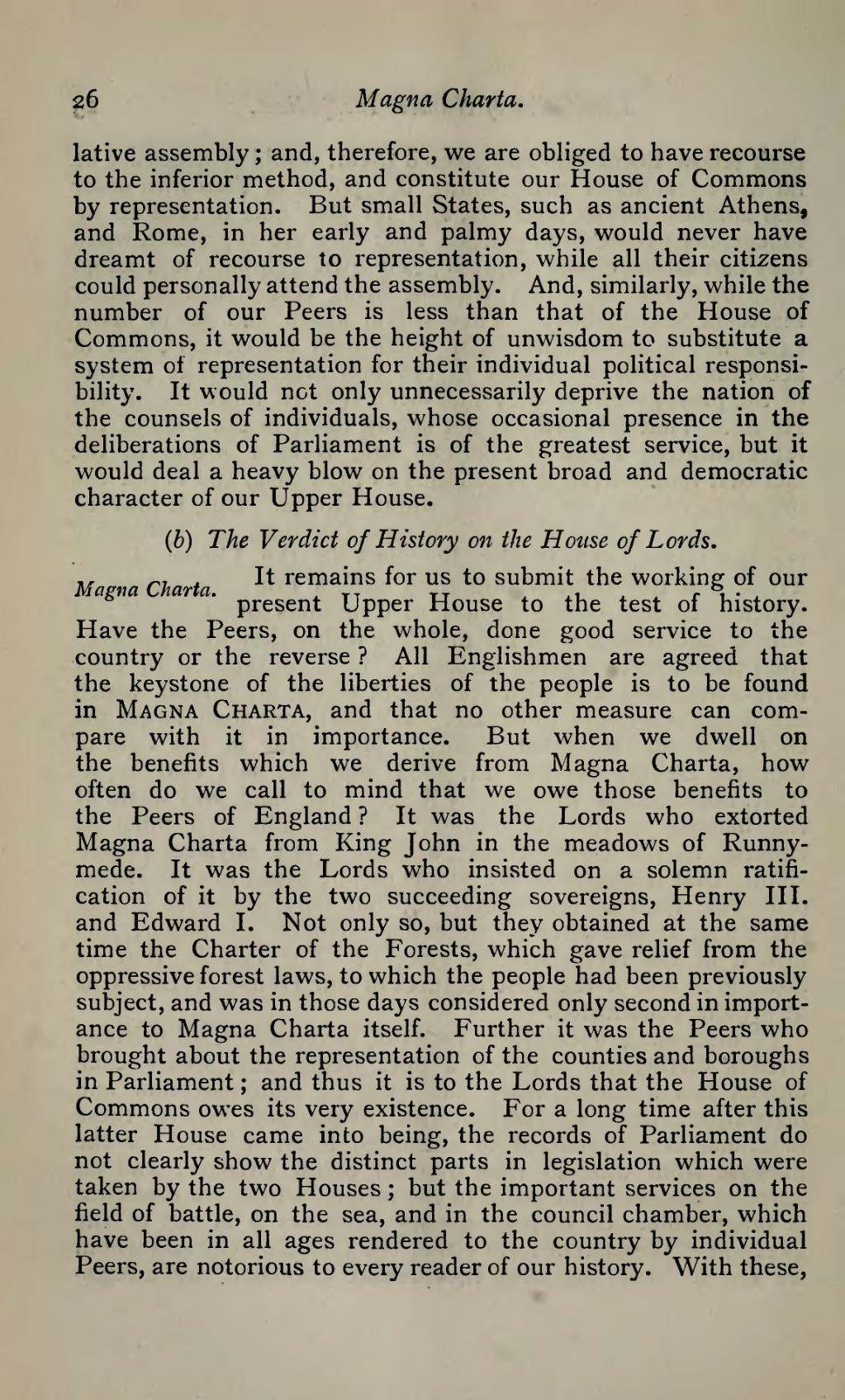lative assembly; and, therefore, we are obliged to have recourse to the inferior method, and constitute our House of Commons by representation. But small States, such as ancient Athens, and Rome, in her early and palmy days, would never have dreamt of recourse to representation, while all their citizens could personally attend the assembly. And, similarly, while the number of our Peers is less than that of the House of Commons, it would be the height of unwisdom to substitute a system of representation for their individual political responsibility. It would not only unnecessarily deprive the nation of the counsels of individuals, whose occasional presence in the deliberations of Parliament is of the greatest service, but it would deal a heavy blow on the present broad and democratic character of our Upper House.
(b) The Verdict of History on the House of Lords.
Magna Charta.It remains for us to submit the working of our present Upper House to the test of history. Have the Peers, on the whole, done good service to the country or the reverse? All Englishmen are agreed that the keystone of the liberties of the people is to be found in
Magna Charta, and that no other measure can compare with it in importance. But when we dwell on the benefits which we derive from Magna Charta, how often do we call to mind that we owe those benefits to the Peers of England? It was the Lords who extorted Magna Charta from King John in the meadows of Runnymede. It was the Lords who insisted on a solemn ratification of it by the two succeeding sovereigns, Henry III. and Edward I. Not only so, but they obtained at the same time the Charter of the Forests, which gave relief from the oppressive forest laws, to which the people had been previously subject, and was in those days considered only second in importance to Magna Charta itself. Further it was the Peers who brought about the representation of the counties and boroughs in Parliament; and thus it is to the Lords that the House of Commons owes its very existence. For a long time after this latter House came into being, the records of Parliament do not clearly show the distinct parts in legislation which were taken by the two Houses; but the important services on the field of battle, on the sea, and in the council chamber, which have been in all ages rendered to the country by individual Peers, are notorious to every reader of our history. With these,
